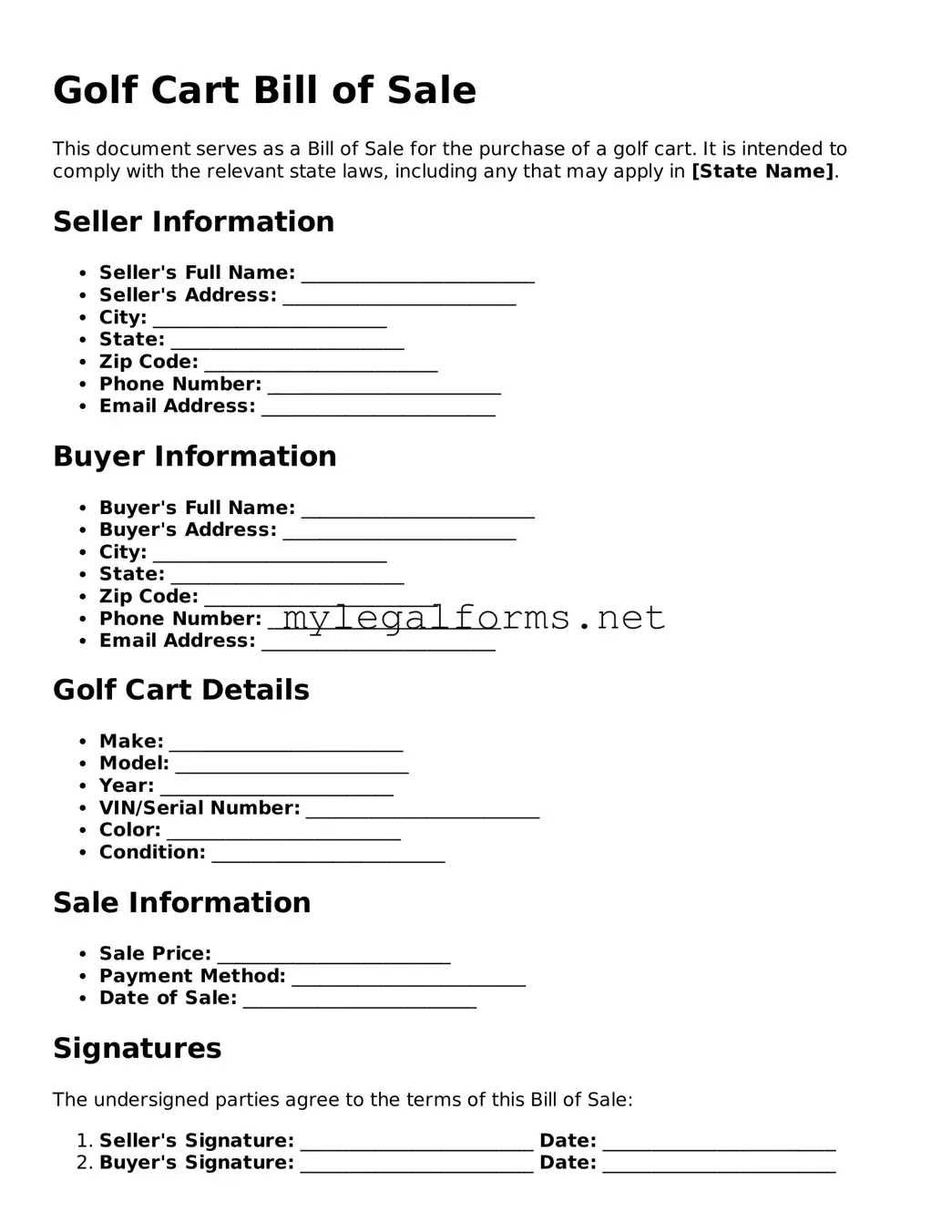Attorney-Approved Golf Cart Bill of Sale Form
A Golf Cart Bill of Sale form is a legal document that records the transfer of ownership of a golf cart from one party to another. This form serves as proof of the transaction and outlines important details such as the purchase price, date of sale, and information about both the buyer and seller. Having a properly completed bill of sale can help protect the interests of both parties involved in the sale.
Launch Golf Cart Bill of Sale Editor

Attorney-Approved Golf Cart Bill of Sale Form
Launch Golf Cart Bill of Sale Editor

Launch Golf Cart Bill of Sale Editor
or
⇓ PDF Form
Complete the form at your pace — fast
Finish your Golf Cart Bill of Sale online and download the final version.